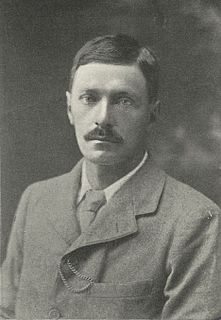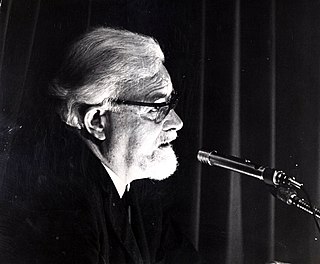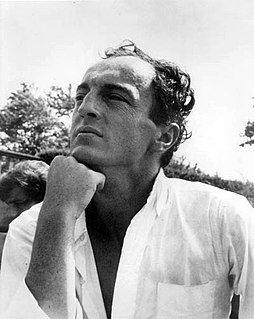A Quote by Willa Cather
She had certain thoughts which were like companions, ideas which were like older and wiser friends.
Related Quotes
She was like me in lineaments-- her eyes Her hair, her features, all, to the very tone Even of her voice, they said were like to mine; But soften'd all, and temper'd into beauty; She had the same lone thoughts and wanderings, The quest of hidden knowledge, and a mind To comprehend the universe: nor these Alone, but with them gentler powers than mine, Pity, and smiles, and tears-- which I had not; And tenderness-- but that I had for her; Humility-- and that I never had. Her faults were mine-- her virtues were her own-- I loved her, and destroy'd her!
He was always part of her thoughts, and now that he was real, he was inescapably part of her life, but it was as she had told her mother: saying he was part of her or that they were more than friends sounded like love, but it seemed like loss as well. All the words she knew to describe what he was to her were from love stories and love songs, but those were not words anyone truly meant.
I mean, when I got to Brown, the place was riven, because you had older professors who were basically new critics and had been teaching a certain way for 30 years. And then you had this other gang who was down with the semiotic program. And as a student, you were, in a way, forced to choose which cohort you were going with.
It was the peculiar artifice of Habit not to suffer her power to be felt at first. Those whom she led, she had the address of appearing only to attend, but was continually doubling her chains upon her companions; which were so slender in themselves, and so silently fastened, that while the attention was engaged by other objects, they were not easily perceived. Each link grew tighter as it had been longer worn; and when by continual additions they became so heavy as to be felt, they were very frequently too strong to be broken.
We don't like to talk about that in America, but there are classes in America. And she [Julia Child] was of a class of women who were wealthy, privately educated, went to Smith, moved in that sort of circle. She was conscripted into the OSS, which is the early CIA, which was all filled with Yalies and Princeton and Harvard people and a few women who were typing mostly but also had something to do.
During intermission she peeked out at the theater, watching it refill. When it was almost full and the lights blinked on and off, she saw three people file in through the center door and her breath caught. Time lapsed as they walked down the center aisle: three teenage girls all in a row. They were so big, so bright, so beautiful, so magnificent to Carmen’s eyes that she thought she was imagining them. They were like goddesses, like Titans. She was so proud of them! They were benevolent and they were righteous. Now, these were friends.
Rightly or wrongly, the Victorian considered that there were certain subjects which were not meet for inter-sexual discussion, just as they held that certain processes of the feminine toilet, like the powdering of the nose and the application of lipstick to the mouth, were (if done at all) better done in private.
They had a year of joy, twelve months of the strange heaven which the salmon know on beds of river shingle, under the gin-clear water. For twenty-four years they were guilty, but this first year was the only one which seemed like happiness. Looking back on it, when they were old, they did not remember that in this year it had ever rained or frozen. The four seasons were coloured like the edge of a rose petal for them.
I remember the first joke that I made, which went over terribly. I was at my cousin's birthday party in Brooklyn. I was a little kid and she was a little older. They were going around introducing themselves; I was probably four, and I was very eager to impress all of these older New York kids. They went down the line and were like, "I'm Jake," "I'm Jane," "I'm Silvia," and I said, "I'm hungry," because I thought that was really going to bring the house down.



































